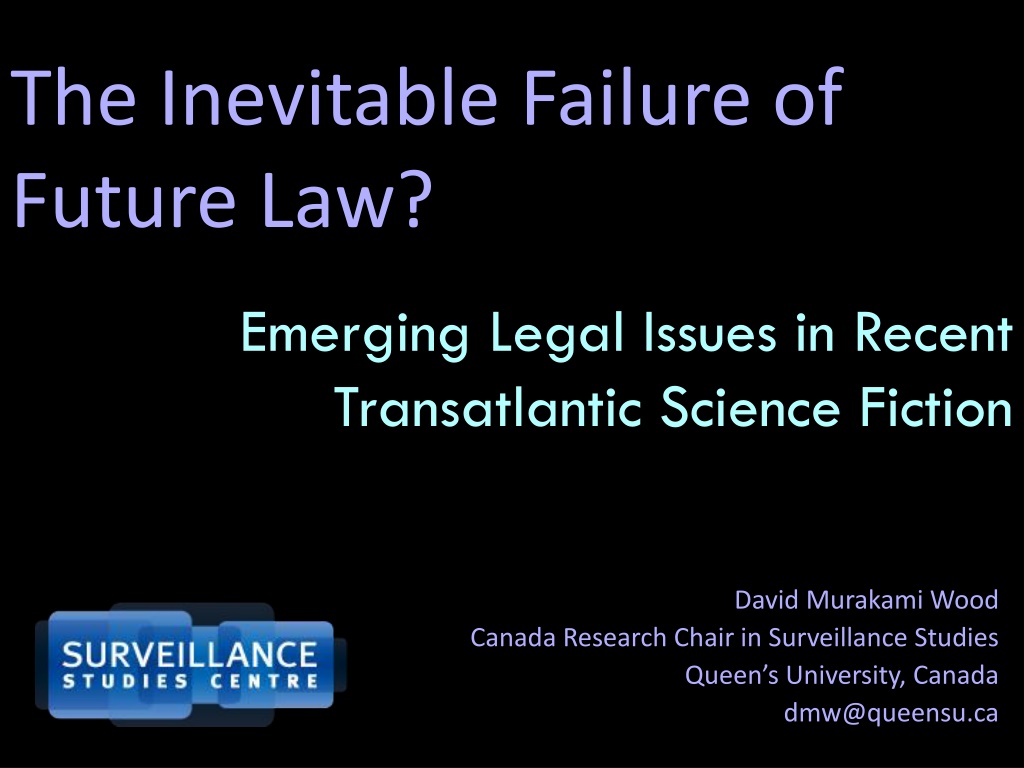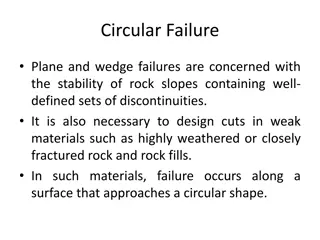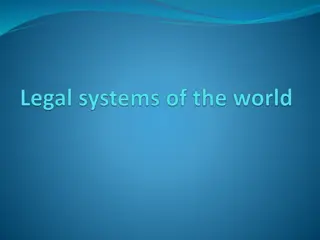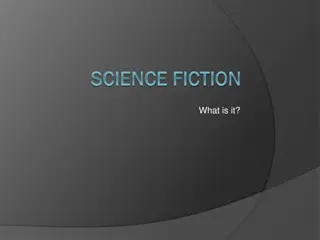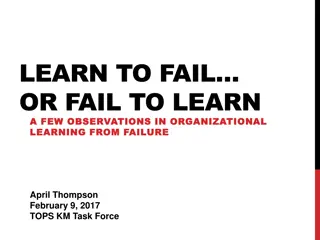Exploring Legal Themes in Science Fiction: The Inevitable Failure of Future Law
This study delves into emerging legal issues in recent transatlantic science fiction works by authors like Charles Stross, Ken McLeod, and Paolo Bacigalupi. It examines the portrayal of law in SF and what insights it offers about our legal systems. Through a systematic survey of over 300 novels and analysis of shared themes, the research sheds light on the representation of crime, surveillance, and the judicial system in speculative fiction.
Download Presentation

Please find below an Image/Link to download the presentation.
The content on the website is provided AS IS for your information and personal use only. It may not be sold, licensed, or shared on other websites without obtaining consent from the author. Download presentation by click this link. If you encounter any issues during the download, it is possible that the publisher has removed the file from their server.
E N D
Presentation Transcript
The Inevitable Failure of Future Law? Emerging Legal Issues in Recent Transatlantic Science Fiction David Murakami Wood Canada Research Chair in Surveillance Studies Queen s University, Canada dmw@queensu.ca
Outline Methods Headline Findings Law: everywhere and nowhere in SF Emerging Legal Issues in 3 science fictional worlds: Charles Stross: Halting State (2007) / Rule 34 (2011) Ken McLeod: Intrusion (2013) Paulo Bacigalupi: The Water Knife (2015) What does SF tell us about law?
Methods 1 Systematic survey element: sample = all major British and American SF prizes 2003-2012 (for books published 2002-2011) Hugos, Nebulas, JWCM, BSFA, ACC, PKD, Locus, Tiptrees Collated nominees + winners: over 300 novels! Tried various ways of shortening this mega-list: Winners Multiple-nominees Combinations However now also extending it to 2013/14/15
Methods 2 Long-list: either won and/or multiply-nominated: 87 novels (+) Forms main pool for analysis of themes Gradually reading all of these Almost complete (never complete!) Then: selected various novels that were either representative of a particular theme Security Surveillance Today: concentrating on novels that deal with crime and law
Shared Themes 1. 2. War and insecurity everywhere Bio/Genetic/Environmental SF (e.g. Gwyneth Jones (2004) Life; Paolo Bacigalupi (2009) The Wind-Up Girl) Concern with Global South and the insecurity of Others (e.g. Geoff Ryman (2004) Air, everything by Ian McDonald, Lauren Beukes (2010) Zoo City) Revival of alternative history (e.g. Connie Wills (2010) Blackout / All Clear) Mainstreaming of slipstream / new weird / urban fantasy (e.g. China Mi ville (2009) The City & the City) and blurring of SF and fantasy Turn to Self-referential fiction (e.g. Cherie Priest (2009) Boneshaker; John Scalzi s (2012) Redshirts) Nostalgia Rise of Young Adult (YA) fiction 3. 4. 5. 6. 7. 8.
Emerging Legal Themes in Three Science Fictional Worlds
An observation SF features a great deal of crime, policing, prisons, private eyes etc. Other aspects of the judicial system, not so much maybe not surprising But consideration of the law as a subject of SF is rare and this is perhaps more surprising
1. A finger in the dyke of techno-depravity Charles Stross dark and cynical humour: Situation Normal All Fucked Up Halting State (2007) / Rule 34 (2011): Rebus in the near future Crime in virtual worlds and the impracticality of geographical jurisdiction Technological development and depravity: the (inevitable?) mismatch of human law and morality But: justicia ex machina AI will judge us c.f. Kim Stanley Robinson s Aurora (2015)
2. If you see something say something Increasing importance of quasi-crime and quasi-law Guidelines, codes of practice, recommendations Empowers vigilantism Your traces will betray you: body or digital Six degrees of separation becomes probable cause Pre-crime: politics of possibility (Amoore) Always backed by (threat of) force Surveillance technologies Torture-lite and consensual interrogation
3. Environmental Lawfare Law as justification for extreme measures in Paulo Bacigalupi sThe Water Knife (2015) Lawyers entirely bound up in corporate resource wars Statutes and contracts as secret weapons Use of private contractors as enforcers Court decisions as ex-post- facto justification for nefarious plans
What does SF tell us about law? Law seems contingent and exceptionalism becomes normal Law is differential in range and speed: Law that defines security is fast paced and both specific and wide-ranging - its transformations are beyond ordinary people Law that protects people (human rights etc.) is slow, over-general and has gaps Law is a tool of powerful interests Law is always backed by threat / use of violence Technology will outpace law to the point where the veredictum of intelligent machines no longer needs the juris dictum of humanity
